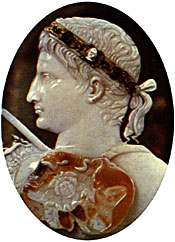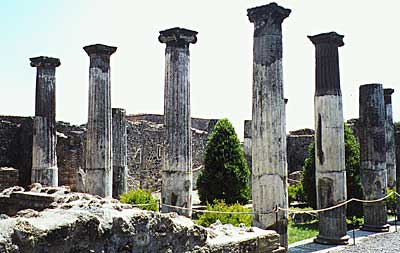
|


|
|
|
Mr. Sedivy's
More Features:
|
Highlands Ranch High School - Mr. Sedivy World
History
The Roman Republic In 509 BC Romans overthrew the Etruscan king, Tarquin. The Roman Republic had no king. They elected two consuls who were only allowed in office for one year. In times of crisis, a dictator would serve for one year, then they would go back to the republic. Patricians, wealthy landowners, had the say in government - about 10% of the population. Plebians, or common people, had few rights at first. Eventually they threatened to not serve in the military if they did not get some rights, so they were given an assembly to vote on Plebian matters. Punic Wars The first took place in 264 BC. Rome thought Carthage was a threat. Rome won in 241 BC. This was Rome's first military conquest. In 218 BC during the second of the Punic Wars, Hannibal, a Carthaginian general invaded from the north with his army and war elephants. They went by way of Spain, gaining allies along the way. In 216 BC Hannibal tricked the Romans. He pretended to retreat, then surrounded and smashed them, and got to the gates of Rome. Hannibal couldn't win because he didn't have enough supplies or men. Rome won in 202 BC. Rome won and destroyed Carthage in the third Punic War in 146 BC. By 196 BC Rome had beaten Macedonia, and by 133 BC Rome had the entire Greek world. (In 214 BC the Roman navy was coming to conquer the Greek town of Syracuse. Archimedes, who had developed a catapult that could throw rocks 600 feet, arranged mirrors to direct the suns concentrated rays at the Roman fleet - the entire fleet was burned.) Julius Caesar Pompeii
Crassus Gallic Wars Caesar beat the other two by 46 BC and made himself dictator. He instituted many reforms, lowered taxes, made governors responsible to him, and gave over 100,000 veterans land. In 44 BC Caesar was named dictator for life. He was killed by Brutus and Cassius, senators who feared his power. End of the Republic I - The Etruscans / Romulus and Remus V - Roman Life and the Spread of Christianity VI - The Pax Romana and Roman Culture VII - Decline of the Roman Empire Class Activity Malaria May Have Hastened the Fall of Rome Virtual Tour of Ancient Rome - Past & Present Historical Periods of | Prehistory
| Mesopotamia & Phoenicians |
|
Highlands Ranch High School ![]() 9375 South Cresthill Lane
9375 South Cresthill Lane ![]() Highlands Ranch, Colorado 80126
Highlands Ranch, Colorado 80126 ![]() 303-471-7000
303-471-7000
Mr. Sedivy's History Classes
| Colorado History | American
Government | Modern European History | Advanced
Placement European History | Rise of England
| World History |
| Home | Back to the Top | Site
Contents |


